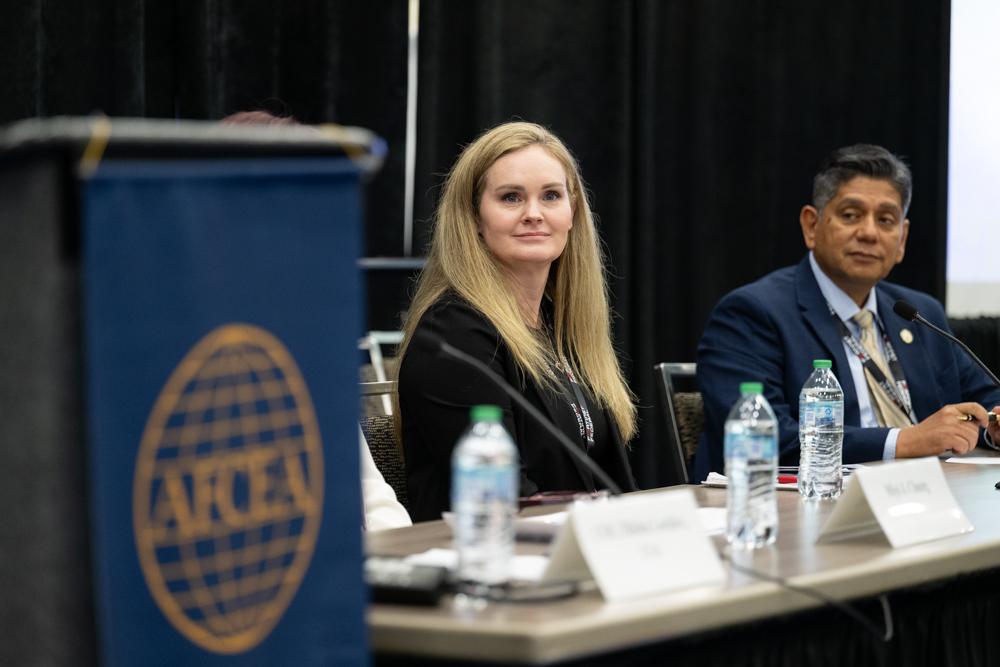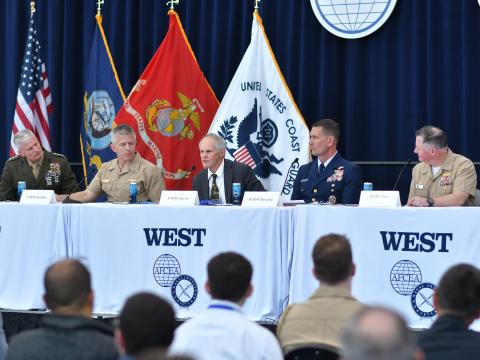DISA's New Task Force Aims To Operationalize Data
To enhance its modernization efforts, the Defense Information Systems Agency (DISA) Global stood up a new task force to help operationalize data, technical director Jerusha “Drew” Cooper told reporters during a media roundtable at TechNet Cyber in Baltimore.
The effort would help reduce the cognitive load for operators, Cooper stated. “More importantly, how do we affect command and control in making sure we’re getting our customers and our mission partners timely, important information and situational awareness when they need it, at the time that they need it?”
The task force has offered many lessons learned, she said. Firstly, the recent federal workforce cuts caused a loss in talent. “We’re trying to rebuild a little bit now,” Cooper shared, ensuring the effort is still ongoing.
“What’s helpful is we do have some contract support,” she stated.
The greatest challenge, however, is getting the data. “In order to take the data directly from the machines and put it into the platforms, it takes a lot of work and curating and transformation,” Cooper said. “Sometimes it’s a hurry-up-and-wait game.”
Once the next data feed comes in, the team can get back to work, she explained.
Additionally, the task force benefited from an exercise that began two months ago, the name of which Cooper did not share. The exercise involves all DISA theaters to test readiness, she said.
“We started realizing that we’re a little bit underwhelmed on the amount of information that we were getting out of the tools and a lot of things that we were seeing,” Cooper stated, then went on to offer an example. “[We thought], ‘Wow, it’s unfortunate that we’re doing this on a PowerPoint when we have this technology that we can utilize to get live views of the data.'”
Cooper therefore pivoted the task force to begin working on that objective, with a mock-up expected by the next exercise, which is set to take place in the next couple of months.
Launched just six months ago, the task force originally stood up out of hide, Cooper stated, meaning that most of the people on the team had other full-time jobs. “The goodness of that is … you’re working with your experts who know the data, who understand the data, who know what it actually means,” she explained.
Cooper and her team were also working to hire additional data expertise, she said, as not a lot exists in operations. “We were trying to change the data culture a little bit and get people to understand that you really need data experts in operations manipulating the data in the time of need,” she stated.
As external changes take place, the ability to pivot is crucial. “I need to be able to have a data expert with me sitting on my ops floor with my ops guys showing them how to manipulate and remaneuver my battlefield and make it more realistic, and to make sure that we’re making the right decisions with the right data,” Cooper said.
Due to the hiring freeze, however, the three newly hired data experts set to work in the task force were unable to join the team. Another group of three experts who had planned to join the task force from DISA headquarters were also unable to partake.
“In the meantime, like I said, we’re still going, we’re still moving forward,” Cooper said, referencing another initiative taking place. “[We’re] creating communities of practice where we’re bringing in the rest of the field commands,” she told reporters.
The aim of this effort is to train together and increase economies of scale.
“Let’s solve these common problems together, working together, building faster, and then we can go off and work on the more specialized things.”
TechNet Cyber is organized by AFCEA International. SIGNAL Media is the official media of AFCEA International.




Comments